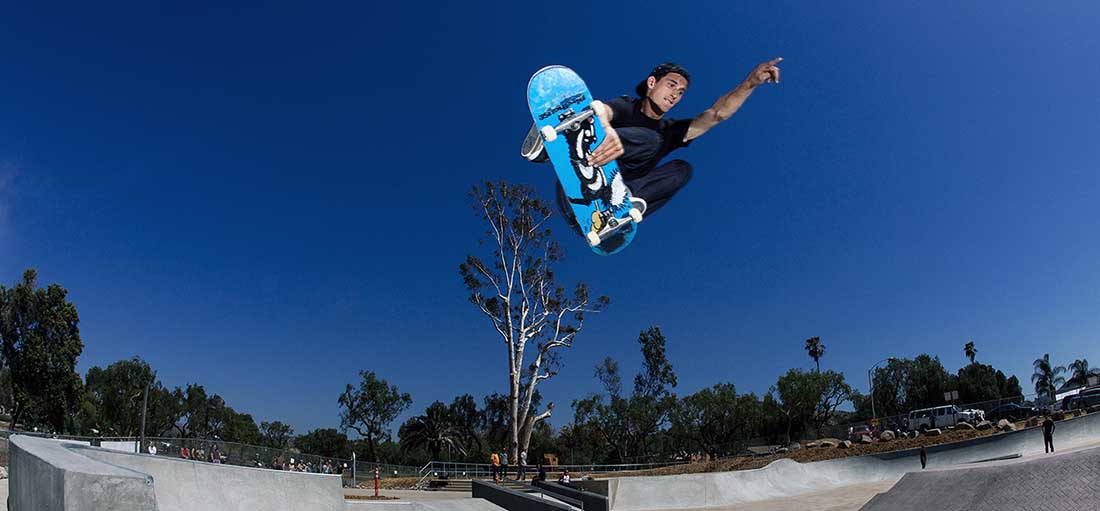
Pullias Center launches first large-scale survey on skateboarding youth
Recent movies like mid90s, Minding the Gap and Skate Kitchen have highlighted the life-changing effect skateboarding and skate culture can have on youth. Now, a research project from the USC Pullias Center for Higher Education aims to pin down on a more concrete level the impact skateboarding has on young people—through a national survey of skateboarding youth.
Launched Nov. 2, this survey comes as a collaboration between education researchers at the Pullias Center, skateboarding culture expert and USC Annenberg School for Communication adjunct professor Neftalie Williams, and the Tony Hawk Foundation, the funder of this study. It is the first large-scale survey of young people who skateboard.
“We have a unique opportunity, working with the Tony Hawk Foundation, to partner with skaters and organizations throughout the country in order to connect with young people,” said Zoë B. Corwin, associate professor at the Pullias Center and the lead researcher of the skateboarding study. “Hopefully youth will be excited about sharing their thoughts through this venue. Our aim is to share the survey widely through capitalizing on skate influencers and social media.”
The survey aims to learn from youth who are passionate about skateboarding—including skateboarders who are integrated into thriving skate communities, as well as those who might feel disenfranchised from the skate community or the community at large. By gaining a deeper understanding of the complexity of skateboarding, research findings will be positioned to inform the larger skate community.
“This combination of skateboarding and academia for the benefit of youth in skateboarding culture is unprecedented,” said Neftalie Williams, an expert in skate diplomacy and a PhD candidate in skateboarding culture at the University of Waikato. “Our research gives skateboarders a platform to speak about their own lives and their communities, and moves away from dated anecdotal assumptions regarding skateboarders’ lives, particularly in regards to people of color. We hope this research highlights areas where young skateboarders need the most assistance and allows for greater targeted allocation of resources from the Tony Hawk Foundation and other youth organizations.”
The survey is the first step in understanding how skateboarders interact with schools and society. In conjunction with the survey, researchers will also interview skateboarders and community members in five distinct regions of the United States, with a particular focus on skaters from low-income and minoritized communities.
While the survey takes just ten minutes to complete, engaging young people to complete this task on their free time—when they could be skating instead—can be a challenge. To get the attention of potential survey-takers, researchers have included photographs of skaters throughout the survey and are working with well-known skaters such as Tony Hawk to help get the word out. In addition, the researchers plan to employ social media—using the hashtag #THFSkateboardingStudy—to promote the survey.
“Since skate culture expands beyond parks and into surrounding communities, we believe it is important to examine the interaction among skateparks and communities and social institutions such as K-12 schools and postsecondary institutions in order to better understand opportunities to improve health, education, and career outcomes for skateboarders,” Corwin said.
The survey will close on November 25. Survey findings will be shared in early 2019. For more information about the survey and the larger skateboarding study, visit the Skateboarding, Society and Schools project webpage.
Photo courtesy of Tony Hawk Foundation